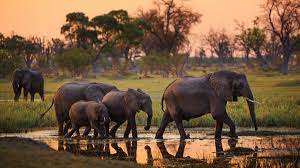
Amazing
Artificial Intelligence Comes to the Aid of Orphaned Elephants in Botswana
In the vast wilderness of Botswana, orphaned elephants are getting a helping hand from an unexpected source – Artificial Intelligence (AI). Elephant Havens, a dedicated wildlife foundation, has joined forces with Colossal, a biotech company, to study elephant behavior and use AI to improve the reintroduction of orphan elephants to the wild.
Debra Stevens, co-founder of Elephant Havens, highlights that human-wildlife conflict is a leading cause of elephants becoming orphaned, with many incidents involving fires. As part of their mission to care for these orphans, Elephant Havens is running a special reintroduction program that will closely monitor the elephants’ progress over a decade.
To aid in this important endeavor, Colossal is conducting an extensive data-gathering operation using the power of AI. By analyzing video footage interpreted by elephant handlers, the AI system will learn about the animals’ social behaviors and leadership models. Matt James, Chief Animal Officer at Colossal, emphasizes that this merging of traditional elephant-handling knowledge with modern AI technology will yield valuable insights to benefit the elephants’ future.
But the collaboration doesn’t stop there. Colossal is taking it a step further by sequencing the genomes of Elephant Havens’ orphans. This gene-trait analysis will explore how the elephants’ genetic information might influence their behavior. Such knowledge can be instrumental in understanding the unique needs of each elephant and supporting their successful reintegration into the wild.
Colossal’s ambitious plans extend beyond just helping orphaned elephants. The data generated through their research will contribute to their larger mission: creating an elephant-mammoth hybrid and introducing it to the Arctic tundra. Similar to Elephant Havens’ efforts, Colossal aims to socially engineer herds, ensuring the successful integration of their creations into the natural environment.
By harnessing the power of AI and combining it with genetic research, Elephant Havens and Colossal are paving the way for more effective wildlife conservation and reintroduction programs. As these remarkable creatures take their steps back into the wild, the partnership between nature and technology serves as a beacon of hope for the future of these majestic animals and the delicate ecosystems they inhabit. With continued dedication and innovative approaches, we can create a harmonious balance between human existence and the preservation of our precious wildlife.
Amazing
Teenager Organizes Stuffed Animal Drive to Comfort Abused Children
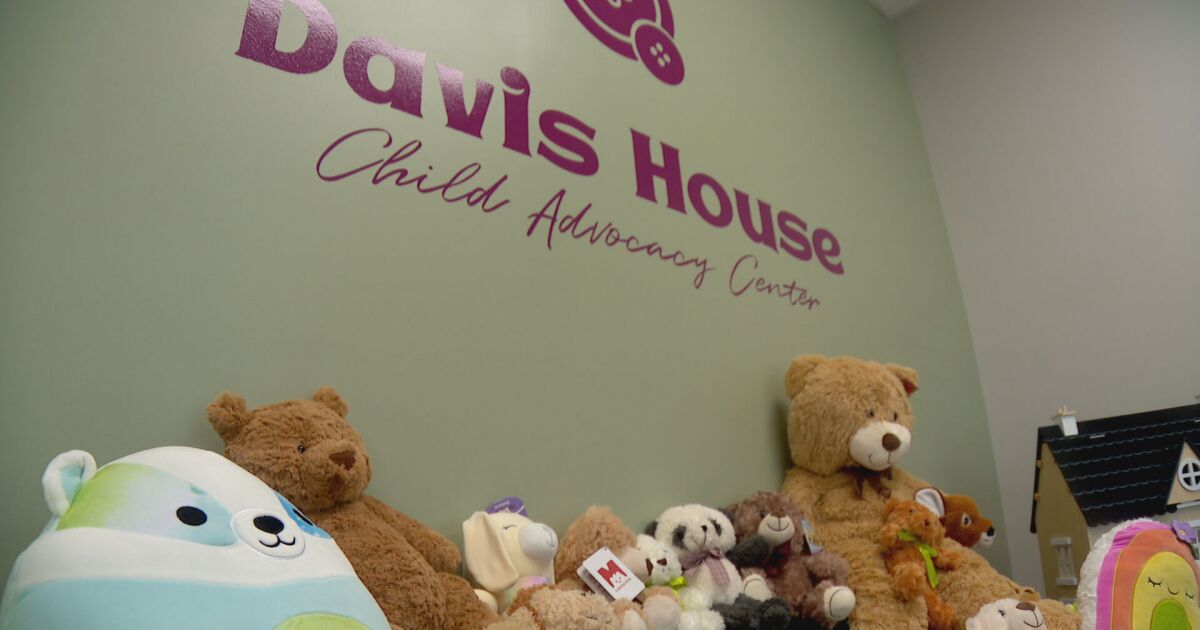
A Williamson County teen is making a difference this Child Abuse Prevention Month by collecting stuffed animals for children in need.
17-year-old Kenny Royer launched a Stuffed Toy Drive to benefit Davis House Child Advocacy Center, a Franklin-based non-profit that supports families experiencing abuse.
Kenny’s drive has been a heartwarming success. Since starting in March, he’s collected over 200 stuffed animals and raised more than $3,000 for Davis House.
“Having a stuffed animal can show these children they’re cared for,” Kenny explained. “It gives them a sense of comfort during a difficult time.”
The drive continues throughout April. New stuffed animals can be donated directly to Davis House or dropped off at designated locations: WST Corporation in Franklin and Montgomery Bell Academy in Nashville.sharemore_vert
Amazing
Ukrainian Heroes: Volunteers Recognized for Saving Animals Amidst Conflict
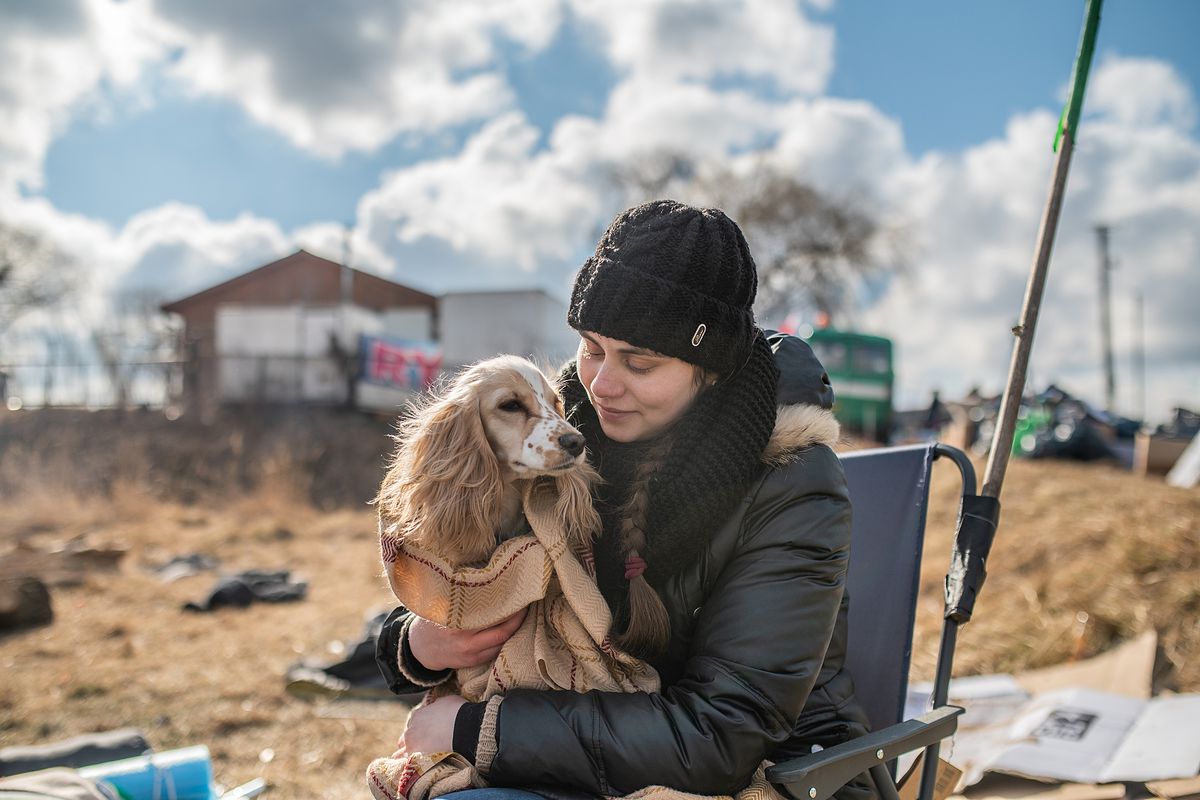
As the war in Ukraine continues to cause widespread devastation, a group of courageous volunteers and activists are being honored for their remarkable efforts to rescue and care for animals caught in the conflict. These individuals, recognized by both animal rights groups and political leaders, have gone above and beyond to ensure the safety and well-being of countless pets and wildlife displaced by the ongoing violence.
One standout among these heroes is Maria Vronska, who manages a shelter near Kyiv. Her facility provides a safe haven for over 700 dogs and cats, many of whom have been abandoned or injured as a result of the war. The shelter not only offers food and medical care but also a temporary home for these animals until they can be reunited with their families or adopted into new ones.
The war has dramatically increased the number of animals in distress as many residents have been forced to flee their homes, often unable to take their pets with them. Shelters and rescue organizations across the country have seen a surge in the number of animals needing care. In response, volunteers like Vronska and her team work tirelessly, often risking their own safety to rescue pets from dangerous areas, provide emergency medical treatment, and keep animal shelters operational despite the challenging conditions.
These efforts are crucial, as the war not only affects human lives but also the animals that share our communities. Pets often provide comfort and companionship to their owners, especially in times of crisis, making their rescue and care a vital part of humanitarian efforts.
International support has also been pivotal, with various global animal welfare organizations stepping in to provide supplies, funding, and support to Ukrainian shelters. This international aid helps maintain the operations of these shelters, ensuring they can continue to offer refuge and care amidst the turmoil.
The dedication of these volunteers and the critical role they play in animal welfare during the war highlight a powerful story of compassion and resilience. Their actions remind us of the profound bond between humans and animals, and the importance of safeguarding all lives in times of conflict.
Amazing
Benard McKinley: From Incarceration to Law School at Northwestern Pritzker
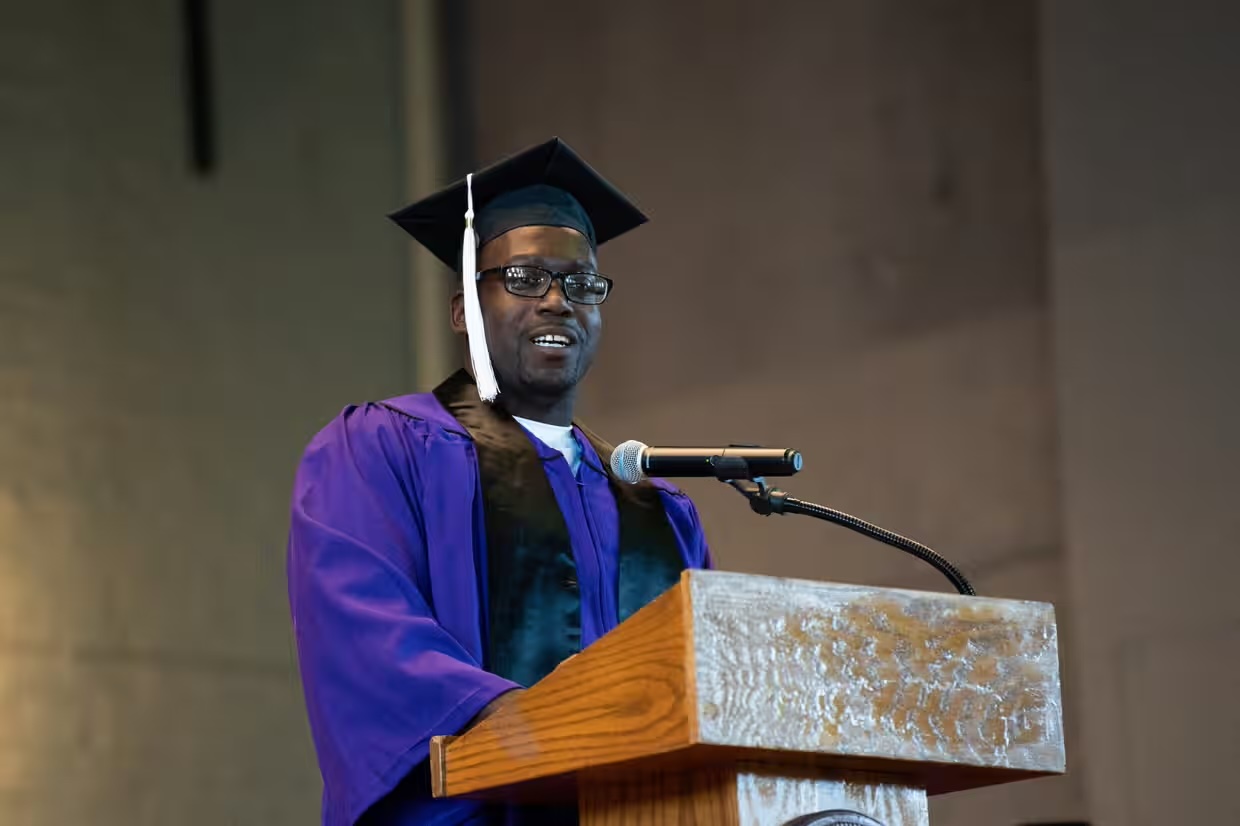
At 39 years old, Benard McKinley has transformed his life in a remarkable way. Recently released from prison in December 2023, McKinley is now preparing to start his first year at the prestigious Northwestern Pritzker School of Law in Chicago. This achievement marks a significant milestone as he becomes the first graduate from Northwestern University’s Prison Education Program (NPEP) to be accepted into any law school, let alone one with a 4% acceptance rate.
McKinley’s journey to higher education began behind the bars of Stateville Correctional Center in northern Illinois, where he completed his bachelor’s degree last year. His academic pursuit was part of NPEP, a pioneering initiative offering college-level education to incarcerated individuals. McKinley was among the first cohort to receive a bachelor’s degree from a top 10 US university while in prison, according to rankings from US News & World Report.
His life took a dramatic turn when he was sentenced at 19 to nearly a century in prison for a gang-related murder. While incarcerated, McKinley dedicated himself to studying law, aiming to challenge his own sentence and assist fellow inmates with their legal issues. His efforts in education began with earning a GED and a paralegal diploma, followed by his acceptance into the competitive NPEP program.
The process of applying to law school was rigorous and conducted from within the prison walls. McKinley prepared for the LSAT, wrote essays, and gathered recommendations with the help of NPEP tutors. His dedication paid off when, after his early release into transitional housing, he was accepted into Northwestern’s law school.
McKinley’s story is not just one of personal triumph but also highlights the transformative power of educational programs within the prison system. Sheila Bedi, a clinical law professor at Northwestern, praised McKinley’s discipline and eagerness to learn, emphasizing the potential of many others like him who could contribute positively to society if given the chance.
Looking ahead, McKinley aspires to become a civil rights lawyer and start a legal aid clinic to support marginalized communities. His journey from a teen sentenced to prison to a law student at one of the country’s top institutions is a profound testament to the possibilities that education and determination can unlock.
Amazing
Missing Pregnant Cat Found at Ottawa Airport After 11 Days
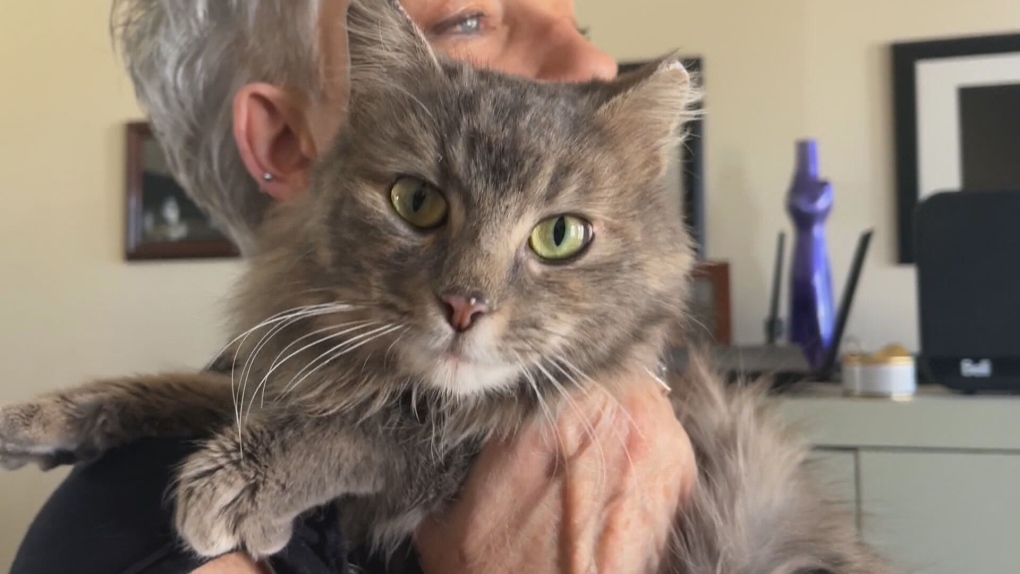
A pregnant cat named Athena was found at the Ottawa International Airport, almost two weeks after she disappeared in the parking area. She had traveled from Winnipeg to Ottawa. The team from Furry Tales Cat Rescue discovered her around midnight on a Tuesday, and thankfully, she’s in good shape.
Volunteer Marta Burczycka from Furry Tales Cat Rescue expressed immense joy and gratitude for Athena’s safe return, highlighting her strong maternal instincts to protect her unborn kittens. The rescue operation caught attention after a helpful tip from Blake Fawcett, an employee working near the airport, who notified the rescue team.
Athena was initially sent to Ottawa on March 21 to get better veterinary care and a safe place to have her kittens. Unfortunately, she escaped when her carrier opened accidentally. For 11 days, volunteers and the rescue team worked tirelessly, setting traps and distributing flyers across the airport to find her before she gave birth.
The community effort was huge, with many airport employees and volunteers spreading the word and looking out for Athena. Janice Richard, one of the trappers, mentioned how they found Athena hungry but still pregnant, emphasizing the collective relief and happiness at her safe recovery.
The rescue story ended happily with Athena being taken care of and preparing to have her kittens in a safe and loving environment, thanks to the persistent efforts of the rescue team and the community’s support.
Amazing
America’s Youngest Teacher Started Her Career at 16

Shania Muhammad became a teacher at just 16 years old, after graduating from college at 15. She grew up in a home where learning was very important. She told “Good Morning America” about how her older brothers and sisters were big influences on her. They did well in school, which inspired her to do the same.
In seventh grade, her father noticed her advanced skills and started preparing her for college entrance exams. This led to her enrolling in college early and feeling like a superhero because she was so young. By 15, she was already finished with college and soon got a job offer to teach.
Muhammad waited until she was 16, so she could drive herself to work, and then started teaching 8-year-old students. These students see her as an adult and respect her, she says. In her classroom, she loves to keep the kids active with group work, presentations, and debates, creating a dynamic and engaging environment.
She encourages open communication in her class, telling her students they can talk about anything with her. Muhammad believes it’s important to have more confidence in success than in failure.
In her conversation with “Good Morning America,” Muhammad shared her view on facing the unknown with courage rather than fear. She encourages people to not hesitate and to create opportunities for themselves if they don’t already exist.
-

 OMG6 years ago
OMG6 years agoA Couple Gave Birth to the Most Beautiful Twins Ever
-

 OMG6 years ago
OMG6 years ago20 Rare Historical Photos
-

 OMG6 years ago
OMG6 years agoHilarious Airport Photos
-

 Cute6 years ago
Cute6 years agoMom Refuses to Let Daughter Eat Sugar and Years Later This is What She Grows Into
-

 OMG5 years ago
OMG5 years agoTop Secret Air Force One Facts That You Never Knew
-
OMG5 years ago
The Funniest Yearbook Photos Of All Time
-

 OMG6 years ago
OMG6 years agoRetired Mathematician Restores Log Cabin
-

 OMG5 years ago
OMG5 years agoWhat Happened When This ‘Duck Dynasty’ Legend Chopped Off His Beard?